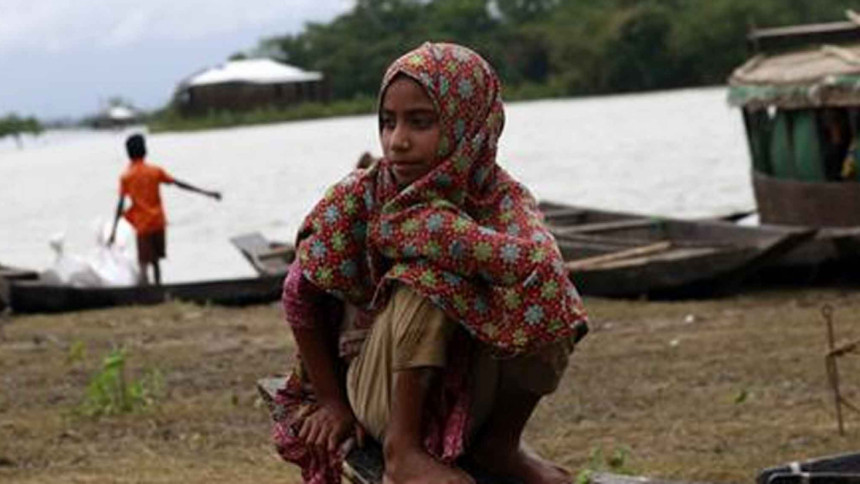The flood situation in the Sylhet division has left a destructive effect on the lives of its residents. Women and children are the worst victims as of yet, with severe health complications, especially, malnutrition.
Tahmina Akhter (20), who took refuge in Hakaluki High school (at present a flood shelter) with her 15-month-old child, said, “My husband left me a month ago. I took shelter in my father’s house with my child but now, it’s flooded.”
“I’m only eating food that’s distributed to the shelter. But I can’t feed my baby due to the lack of privacy. It worries me.”
Bilasi Begum (40) at the same shelter said, “I’ve never seen such a flood in my life. In just two days, everything was submerged in water. There was some dry rice in the house, which got wet and by now, they’re probably rotten.”
“We have nothing to eat. I was only able to fetch a couple of clothes and my cattle. We had no other place to stay. I’m spending days in my torn, wet clothes.”
Popy Begum (18), who took shelter at a centre in Kulaura, said although relief is coming through, hardly any hygiene and sanitary products are being provided. As a result, many girls are facing trouble during their periods at the shelter.
Sajan Mia of Tanguar Haor said since the floods, they can’t focus on child development separately. “I’m not even able to pay attention to my pregnant wife properly.”
Pritam Das, coordinator of the Bibeki Tarunyo, a relief-based organisation, said although relief is being provided in different parts of Sylhet, women and children are facing a lack of proper food.
“Parents lament the failure to provide nutritious food for their children. Adequate government support not reaching these areas only make things worse.”
“We initially planned to provide relief at Sylhet’s Kanaighat. Later we came to know through a friend that no relief has reached three villages in Sylhet’s Nawagaon, Pachpara, and Chilla in Paschim Alirgaon union of Gowainghat Upazila,” he said.
“For this, we’ve distributed relief to 600 families in those villages. This is the first time they received relief in six days since the floods hit.”
“In our distribution drive, we provided some sanitary pads for teenage girls. Women have been very happy to get these materials,” he added.
Dr Mohammad Noore Alam Shamim, assistant director (Disease Control) in the Department of Health (Sylhet) said, “Most women and children feel uncomfortable voicing out what their major needs and concerns are. Hence, they need special attention during floods.”

